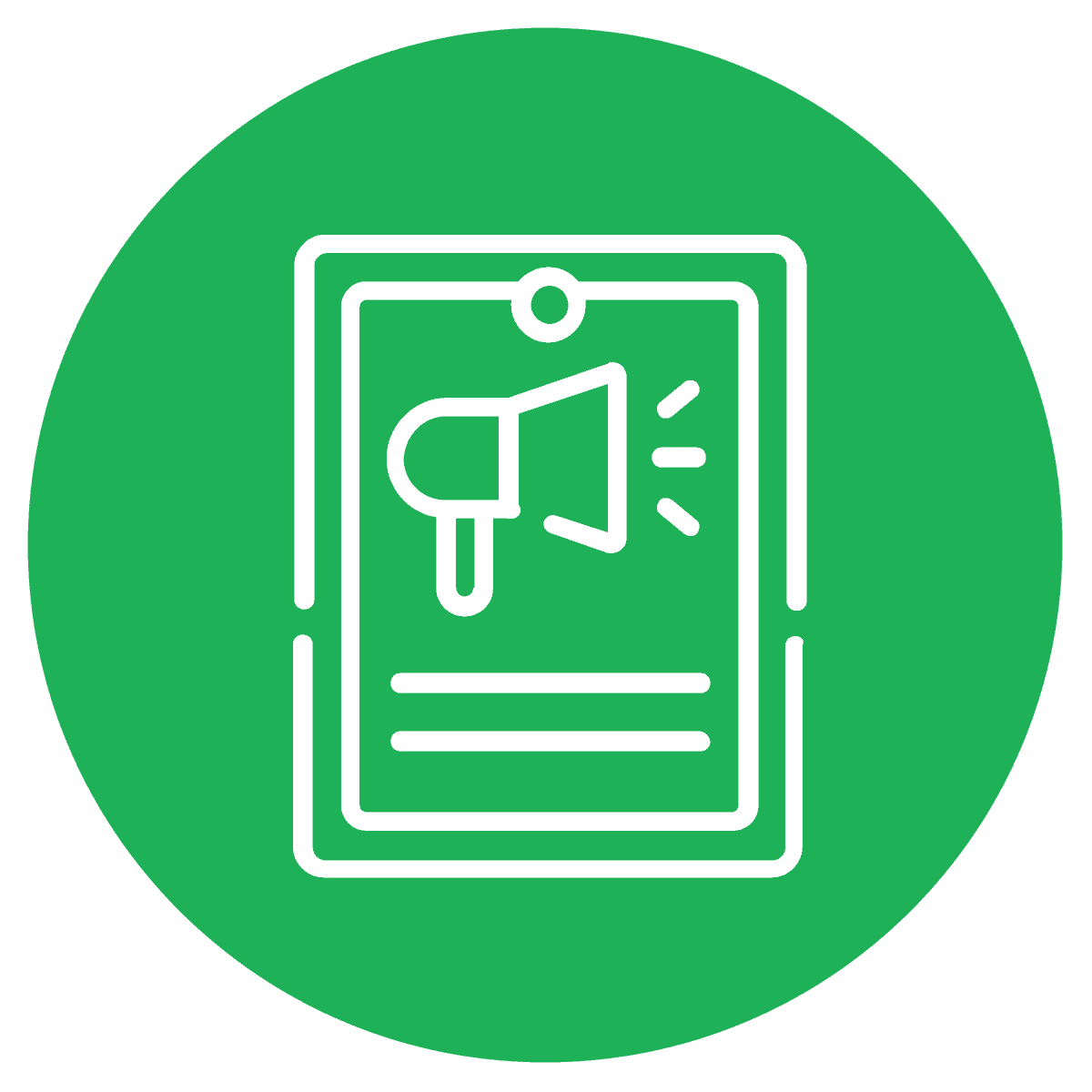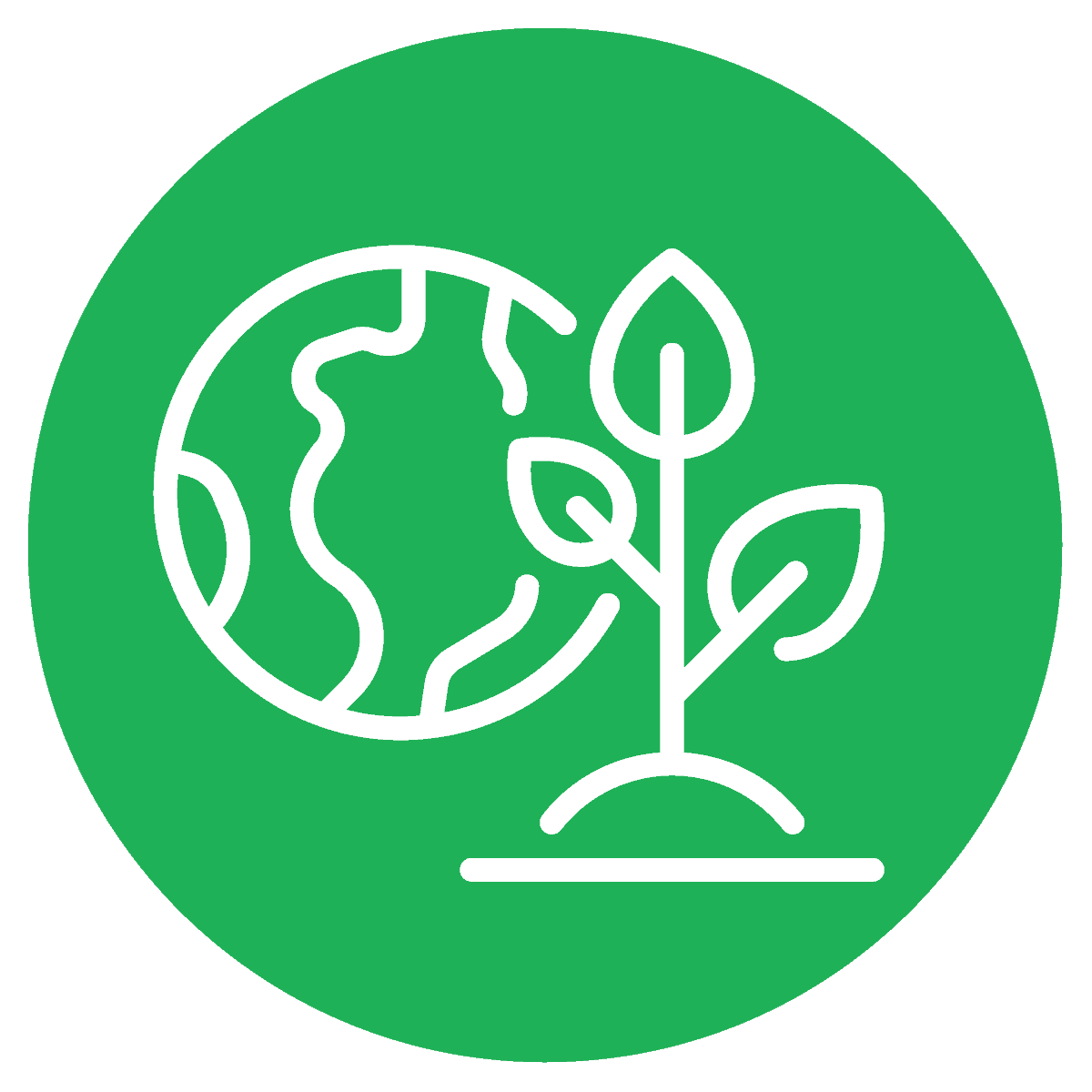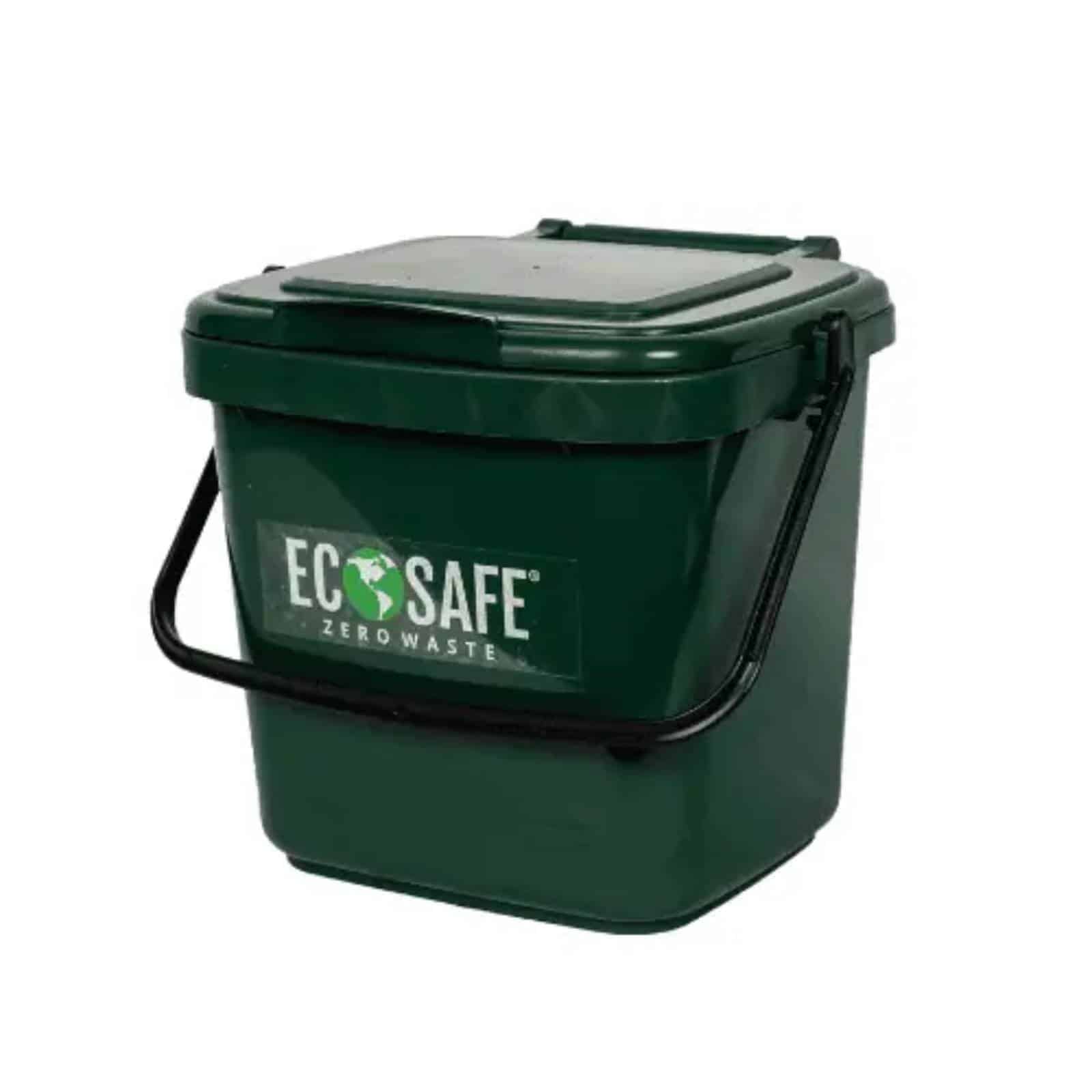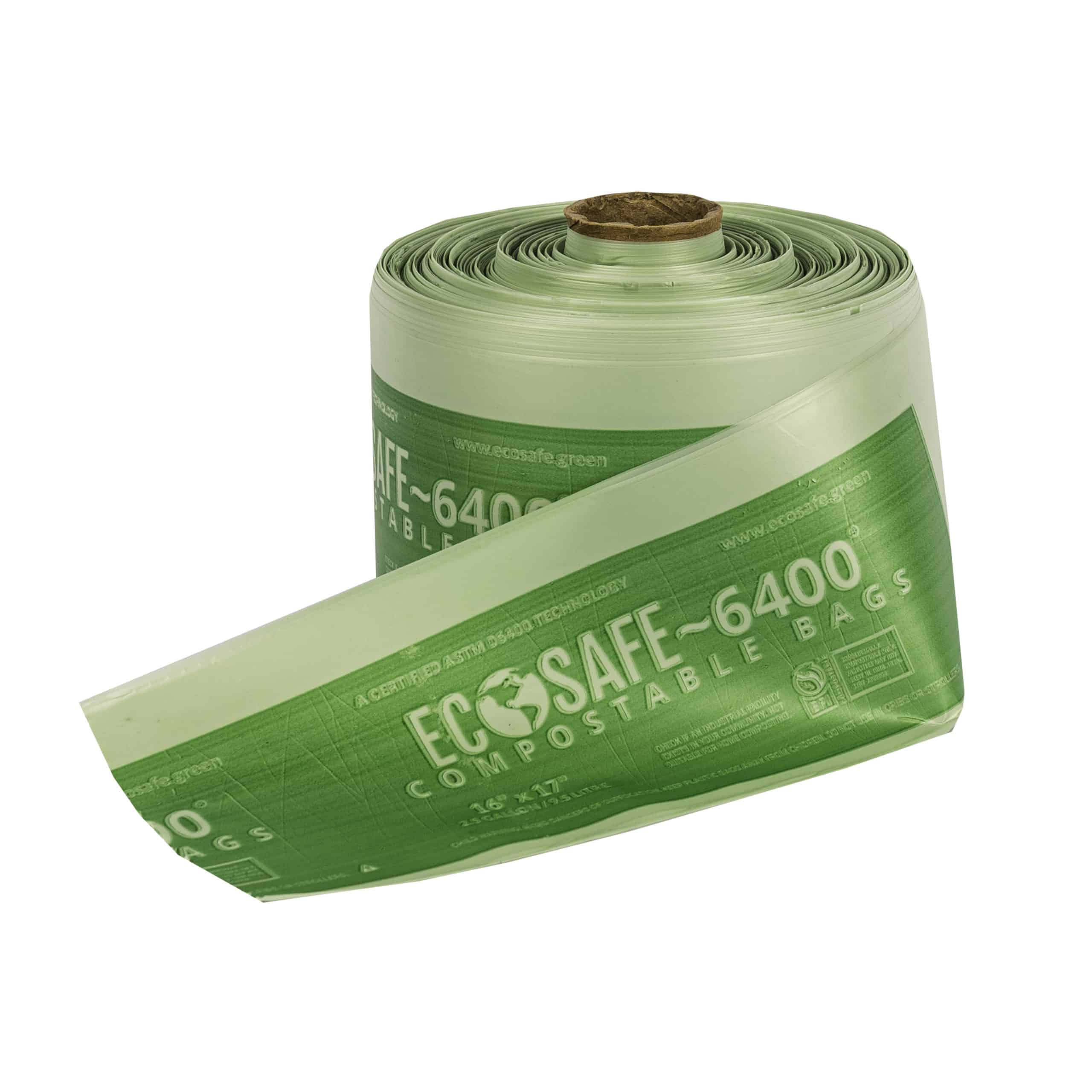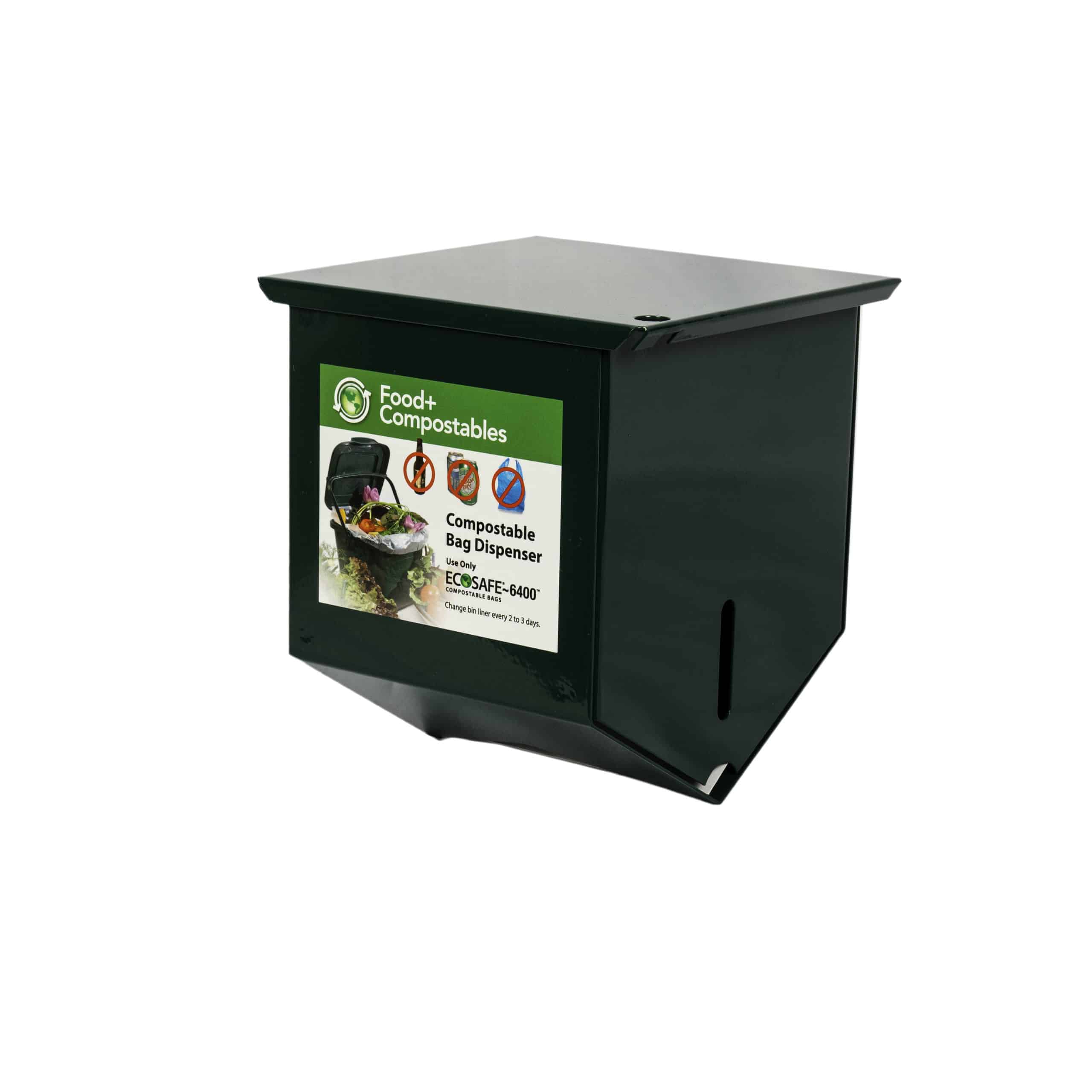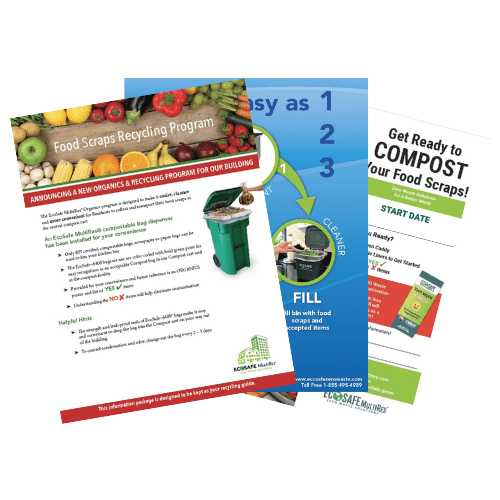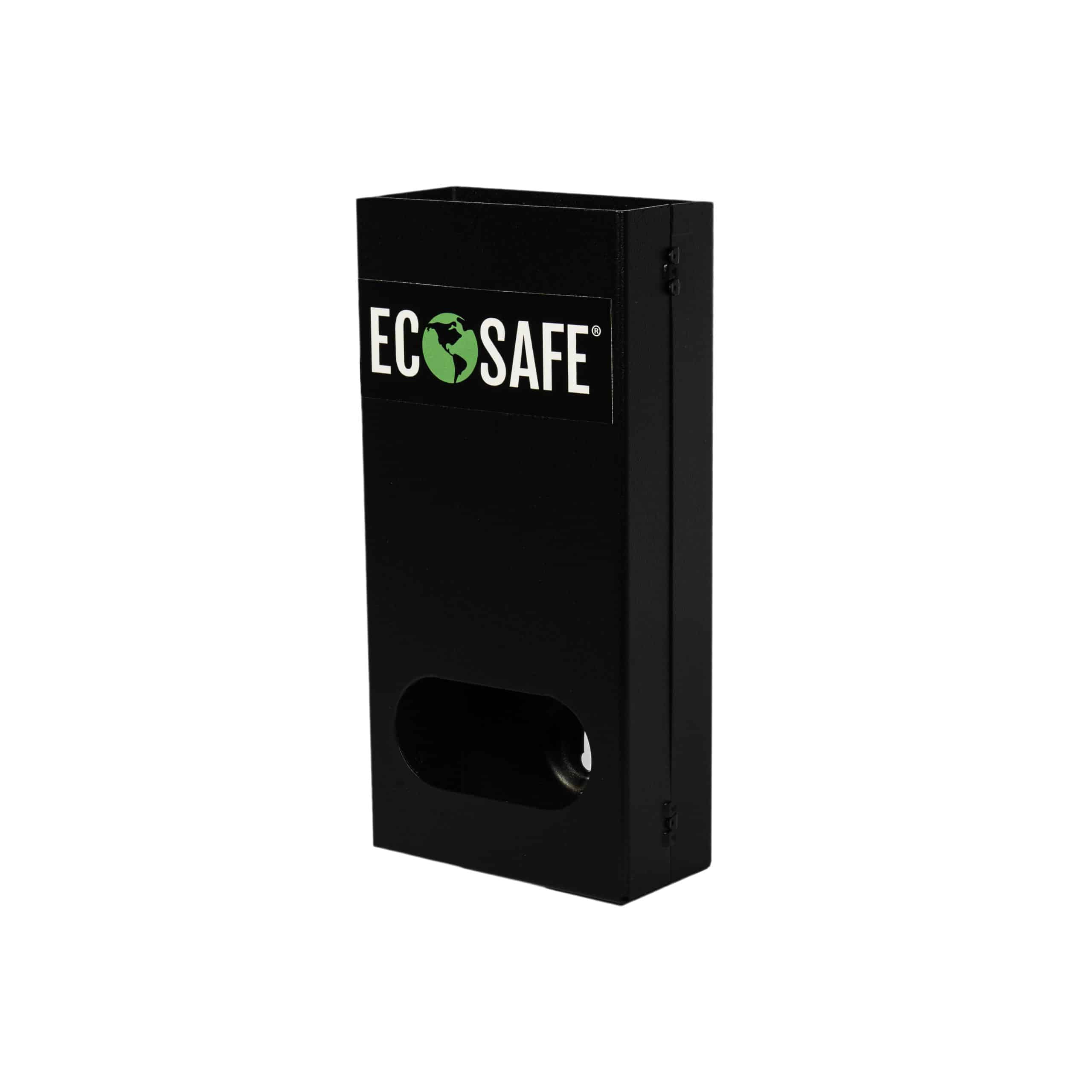
Multi-residential buildings should have easy access to food scrap recycling options, but it may seem daunting. That’s where EcoSafe comes in–we take care of 90% of the effort. The EcoSafe MultiRes food scrap recycling program is an ideal option for apartment buildings that want to do their part in reducing carbon emissions and aiding a healthier planet.
The patented EcoSafe MultiRes program is everything you need to set up an enhanced or brand new food scraps collection program. Collecting food scraps for compost is the #1 most influential way your residents can impact climate change. With this program, your residents are introduced to food scraps collection through clearly designed signage in the common area(s), an instructional resident package, and the EcoSafe bags, bins, and dispensers to make everything work.
Why Use EcoSafe’s MultiRes Program?
Our landfills are becoming land full. Investing in a food scraps collection program is great for the environment and your business. Here’s why:
Cost Savings
Collecting food scraps for compost will decrease the volume of waste sent from your property to landfills, which can reduce costs.
Boost Your Brand
Seamless food scraps collection for any size or style of building will engage your current residents and attract new residents.
Every bag, bin and dispenser is designed to work together for seamless food scraps collection. Remove any worries you have about getting the right size or strength of bag. It’s done for you.
How to Collect Food Waste in an Apartment
First, we’ll give you access to our patented EcoSafe bag dispensers, stocked with BPI-certified EcoSafe compostable bags. Place these throughout the building so residents have access to the bags ready for the compost system of your local commercial composter, whenever they need them. Making these bags easily accessible is the easiest way to encourage your residents to keep recycling food scraps.
All residents will also receive an instructional resident package, as well as EcoSafe bags and bins to recycle food scraps in their apartments.
To help your residents compost properly, remind them to avoid mixing non-organic materials with compost, as this can be considered “contamination.” It’s important to avoid bringing plastic bags, produce stickers, bread tags, and other plastics, glass, and other non-organic items into the organic waste collection systems for a successful compost.
Recommended Products for Composting Food Scraps
Interested in using the right tools to collect food waste in your apartment building? See our products listed below for our recommendations or check out our other compostable products to get started.
Customizable Education/Signage Available by Request
Downloads
Get more information about MultiRes
Food loss and waste occur at each stage of the supply chain. The biggest proportion (about 37%) happens in the home.
ReFED, 2021


